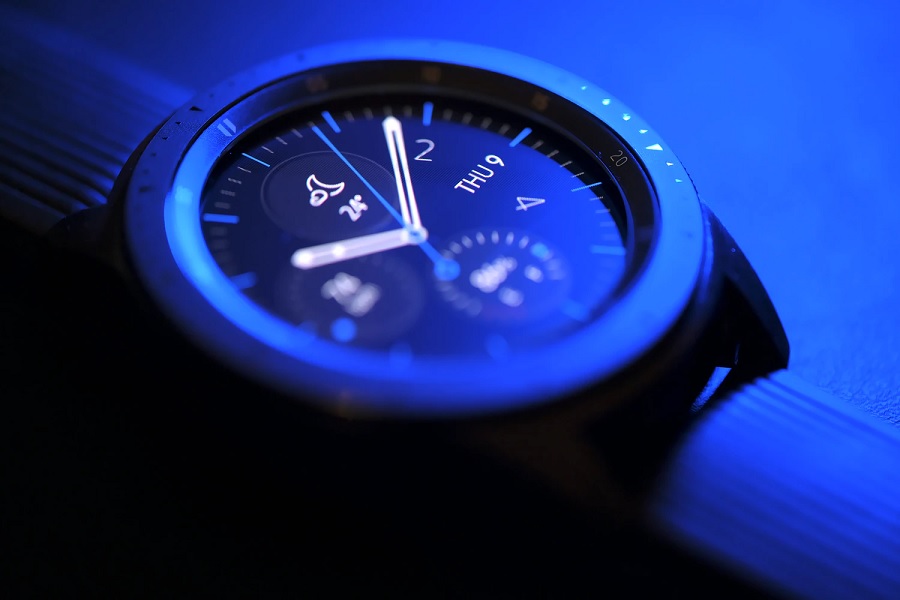There is good news and bad news for tech fans looking forward to the announcement of Galaxy Watch 4. Samsung is reportedly planning to use Google Wear OS for the upcoming wearable device. However, its highly anticipated new health monitoring feature may not be available when it is released later this year.
Samsung ditches Tizen OS in Galaxy Watch 4?
The Galaxy Watch 4 has been widely rumored to adopt the Wear OS starting this year. But a report from the Korean publication MT suggests the change is also happening for the Galaxy Watch 4 Active. If Samsung ends up confirming this information, this would be the first time the tech giant is launching smartwatches without the Linux-based Tizen operating system.
Samsung is reportedly leaning into using Wear OS for the Galaxy Watch 4 as it would better allow developers to build apps for the wearable devices, the same report claims. The change is also expected to benefit Google well in terms of letting Wear OS reach even more smartwatch users worldwide.
Counterpoint Research reported Samsung has maintained a 10 percent share of the global smartwatch shipments in the third and fourth quarters of 2020. But it is only second to Apple that has maintained a commanding lead with 28 percent in Q3 and 40 percent in Q4. Apple’s last quarter shipments were likely driven up by the launch of Apple Watch Series 6 and Apple Watch SE last fall.
Galaxy Watch 4 might not have blood sugar tracking
Unfortunately, the Wear OS adoption might be the only major change to expect from the Galaxy Watch 4 this year. Despite earlier claims that Samsung is introducing a new blood sugar tracking feature, the report mentioned that the smartwatch would no longer launch with it.
As for other rumored specs, the Galaxy Watch 4 is expected to have a different form factor and would launch with 42mm and 46mm models. These are 1-2mm bigger than the sizes offered for Galaxy Watch 3 last year. The Active-named variant will reportedly ship with smaller watches at 40mm and 42mm. Samsung’s next smartwatches are both speculated to launch in August.
Photo by Samer Khodeir on Unsplash



 OpenAI Secures $110 Billion Funding Round at $840 Billion Valuation Ahead of IPO
OpenAI Secures $110 Billion Funding Round at $840 Billion Valuation Ahead of IPO  Samsung and SK Hynix Shares Hit Record Highs as Nvidia Earnings Boost AI Chip Demand
Samsung and SK Hynix Shares Hit Record Highs as Nvidia Earnings Boost AI Chip Demand  Synopsys Q2 Revenue Forecast Misses Expectations Amid China Export Curbs and AI Shift
Synopsys Q2 Revenue Forecast Misses Expectations Amid China Export Curbs and AI Shift  Hyundai Motor Group to Invest $6.26 Billion in AI Data Center, Robotics and Renewable Energy Projects in South Korea
Hyundai Motor Group to Invest $6.26 Billion in AI Data Center, Robotics and Renewable Energy Projects in South Korea  Samsung Electronics Stock Poised for $1 Trillion Valuation Amid AI and Memory Boom
Samsung Electronics Stock Poised for $1 Trillion Valuation Amid AI and Memory Boom  Nvidia Earnings Preview: AI Chip Demand, Data Center Growth and Blackwell Shipments in Focus
Nvidia Earnings Preview: AI Chip Demand, Data Center Growth and Blackwell Shipments in Focus  AI is already creeping into election campaigns. NZ’s rules aren’t ready
AI is already creeping into election campaigns. NZ’s rules aren’t ready  Anthropic Refuses Pentagon Request to Remove AI Safeguards Amid Defense Contract Dispute
Anthropic Refuses Pentagon Request to Remove AI Safeguards Amid Defense Contract Dispute  U.S. Deploys Tomahawks, B-2 Bombers, F-35 Jets and AI Tools in Operation Epic Fury Against Iran
U.S. Deploys Tomahawks, B-2 Bombers, F-35 Jets and AI Tools in Operation Epic Fury Against Iran  Hyundai Motor Plans Multibillion-Dollar Investment in Robotics, AI and Hydrogen in South Korea
Hyundai Motor Plans Multibillion-Dollar Investment in Robotics, AI and Hydrogen in South Korea  Federal Judge Blocks Virginia Social Media Age Verification Law Over First Amendment Concerns
Federal Judge Blocks Virginia Social Media Age Verification Law Over First Amendment Concerns  Meta Signs Multi-Billion Dollar AI Chip Deal With Google to Power Next-Gen AI Models
Meta Signs Multi-Billion Dollar AI Chip Deal With Google to Power Next-Gen AI Models  Nvidia Earnings Beat Expectations as AI Demand Surges, Stock Rises on Strong Revenue Outlook
Nvidia Earnings Beat Expectations as AI Demand Surges, Stock Rises on Strong Revenue Outlook  Snowflake Forecasts Strong Fiscal 2027 Revenue Growth as Enterprise AI Demand Surges
Snowflake Forecasts Strong Fiscal 2027 Revenue Growth as Enterprise AI Demand Surges  OpenAI Faces Scrutiny After Banning ChatGPT Account of Tumbler Ridge Shooting Suspect
OpenAI Faces Scrutiny After Banning ChatGPT Account of Tumbler Ridge Shooting Suspect  OpenAI Hires Former Meta and Apple AI Leader Ruomin Pang Amid Intensifying AI Talent War
OpenAI Hires Former Meta and Apple AI Leader Ruomin Pang Amid Intensifying AI Talent War 































